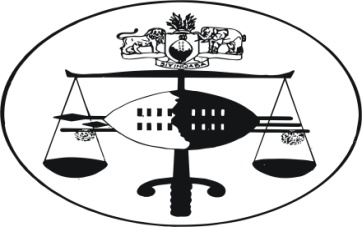
IN THE HIGH COURT OF SWAZILAND
JUDGMENT
Case No. 4540/2010
In the matter between:
MANDLA DLAMINI Applicant
And
TOWIA MKABA 1st Respondent
THE REGISTRAR GENERAL 2nd Respondent
THE ATTORNEY GENERAL 3rd Respondent
Neutral citation: Mandla Dlamini v Towia Mkaba & 2 others (4540/2010) [2013] SZHC 116 (11th June 2013)
Coram: M. Dlamini J.
Heard: 5th March 2013
Delivered: 11th June 2013
– dissolution of marriage in terms of Swazi law and custom –instances warranting dissolution at instance of the man -
Summary: The applicant instituted motion proceedings for orders declaring a marriage in terms of Swazi law and custom lawfully terminated between respondent and himself.
[1] The grounds for divorce were as appears in the founding affidavit and repeated under oath during viva voce evidence as:
“7. During the year 2005, the marriage between myself and the 1st respondent began to wear and tear to an extent of irretrievably breaking down.
7.1 The 1st respondent ill-treated my parents and did not want them to visit our matrimonial home. She threatened of poisoning them in the event they visit our matrimonial home.
7.2 The 1st respondent ill-treated me and abused emotionally and verbally.”
[2] Thandabantu Nhlapho in his book “Marriage and Divorce in Swazi Law and Custom” had this to say:
“Striking evidence of the belief in Swazi society that marriage is a permanent status was found in the research among Swazi Court officials. Their unanimous view lent support to the earlier writings on the subject. Kuper for instance declared: “Divorce is extremely rare among the Swazi”. Nxumalo says, “Swazi tradition does not accept divorce in the Western sense”. But by far the most often quoted is the statement by Marwick. “Divorce is extremely difficult to obtain among the Swazis – it is difficult to separate from a wife”. Marwick also gives the reason:
“The Swazis have almost illimitable capacity for compromise, and it will only be in the most stubborn cases where there is grievous cause for complaint that the separation would be effected.”
[3] It is for the above reason that the learned author identified certain instances which may warrant divorce. Those circumstances are distinct in respect of each party. For instance a wife cannot divorce her husband on the ground for adultery while a husband may.
[4] The grounds stated by applicant i.e. abuse at the hands of his wife is unheard of in our society.
[5] Turning to the second ground, viz. ill-treatment and refusal to accept her in-laws, Nhlapho supra at page 44 writes:
“Swazi marriage is as much a social process as it is a legal one. It seeks to create a strong relationship between two groups of kin and is characterized by involvement of both families …”(my emphasis)
[6] For the above position of the customary law and in light of the fact that the applicant’s evidence is uncontroverted, I will infer that by respondent’s act of alienating her in laws, this goes to the root of the marriage and therefore a good ground for a dissolution.
[7] In the result, prayers 1 and 2 of the Notice of Motion dated 1st December 2010 are hereby granted.
[8] No order as to costs.
__________________
M. DLAMINI
JUDGE
For Applicant : N. Nkomonde
3